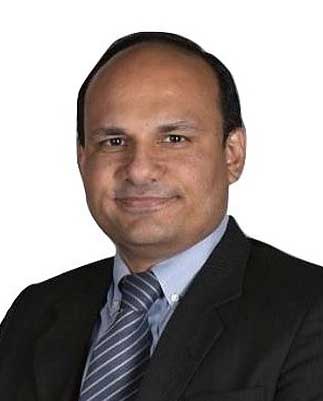A new opt-out organ donation system that is expected to be in place by 2020 could save as many as 700 lives a year. The change has been named Max’s Law after 10-year-old Max Johnson, who was saved by a heart transplant. It has been adopted to tackle donor shortages and is intended to shift the balance of presumption in favour of organ donation. The new scheme will also include an opt out for those who do not wish to take part. It will replace the current plan, under which people must sign up to be a donor on the NHS Organ Donor Register. There is a desperate shortage of organ donors in the UK. ‘Introducing an opt-out system in England will better reflect the views of the general public and give hope to those currently waiting for a transplant they so desperately need.’
A walk was organized to highlight campaign for organ donation to save human lives. People representing all walks of life including those patients who are recipients of organ donations assembled at Mazar-e-Quaid at 4pm to highlight the mass awareness campaign for organ donation in order to save human lives. The walk was organized by Sindh Institute of Urology and Transplantation (SIUT) in collaboration with Human Organ Transplantation Authority Pakistan (HOTA), Pakistan Society of Nephrology (PSN), Pakistan Association of Urological Surgeons (PAUS), Transplantation Society of Pakistan (TSP).Giving the details of the motive behind arranging the walk, Dr Adibul Hasan Rizvi Director Sindh Institute of Urology and Transplantation (SIUT) said that the walk was aimed to promote wider awareness of the society for the need for increased organ donation. He disclosed that the series of programs has been initiated by SIUT for the purpose of saving human lives of those patients who are suffering from organ failure. He urged the people to come forward and promote the subject with family and friends about their organ donation decision and specially to encourage signing on organ donor registration. He said that the “deceased organ donation is an important “human issue” in our society “which needs support from all segments of society. Every year two hundred thousand (200,000) people in the country die on account of organ failure he pointed out. “Deceased Organ Donation” can give them a new lease of life he commented.
He reminded that the concept of organ donation after death is encouraged all over the world to save precious lives. Dr Rizvi, who is a prominent transplant surgeon who played a vital role in introducing transplant surgery in the country said: “More lives can be saved if people become member of organ donation and share the message to their near and dear ones. One can save and improve the lives of 8 or more people as an organ donor.”
The Sindh Institute of Urology and Transplantation (SIUT) in collaboration with four other organizations engaged in similar work held a walk as part of its efforts to create awareness about the need of cadaver organs donations. Although there is no dearth in this country of people willing to help others, the concept of cadaver organs donation is yet to gain acceptance. The Ulema should also encourage people in this respect. They should have no hesitation to do that considering that it is an established practice in other Muslim countries, such as Saudi Arabia and Turkey. Also, it is pertinent to recall here that for quite some time cadaver corneas offered by Sri Lankans have been giving the gift of sight to countless Pakistanis. Prominent Pakistanis also need to step forward and act as role models for promoting such giving.
Bringing people to a level of awareness that they opt for the deceased organ donation programme is the only way to effectively curb growing illegal organ trade. This requires a proactive role of the state having the responsibility to implement the relevant law and show greater commitment towards public health and the media industry that must fulfill its corporate social responsibility. The illegal organ transplants will continue unless we have a comprehensive dedicated deceased organ donation programme in place in the country. It’s a matter of a huge gap between patient in need of organ transplants and fewer availability of the life-saving resource. The deceased donor programme couldn’t take off. Forty years have passed but there has been no progress on the latter. The efforts of Chief Justice of Pakistan Mian Saqib Nisar should be appreciated and all experts who took time out and deliberated on preparing a draft of recommendations. It’s the first time that all stakeholders had gathered on one platform to work out a national and provincial plan on deceased organ donation.
The problem at the bottom, the experts said, was the growing demand for transplants as more and more patients suffered from end-stage organ failure and availability of fewer life-saving resource, encouraging traffickers to take advantage of the situation by exploiting the poor and patient families in need. Organ trafficking, they pointed out, could only effectively be curbed through popularizing the concept of cadaveric donation. National and provincial registries should be established at state expense to create a deceased donor database and bank, a database of potential recipients and to prescribe methods for safe and efficient harvesting of such organs. The experts suggests that the state should institute mechanisms that enable citizens desiring to join the deceased donor programme to exercise the option of making a lifetime gift of such organs.
Sign in
Welcome! Log into your account
Forgot your password? Get help
Password recovery
Recover your password
A password will be e-mailed to you.




